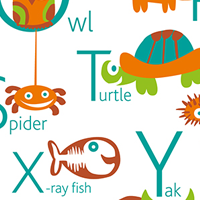Từ vựng - Ngữ pháp Unit 11 lớp 8 Science and Technology
Đến với bộ sưu tập Từ vựng - Ngữ pháp tiếng Anh lớp 8 Unit 11 Science and Technology, quý thầy cô và các em học sinh sẽ có thêm nhiều tài liệu phục vụ cho công tác dạy và học môn Tiếng Anh. Bộ sưu tập này sẽ giúp các em học sinh nắm được nghĩa của các từ vựng & cấu trúc tiếng Anh quan trọng trong Unit 11 Science and Technology SGK tiếng Anh 8 mới. Qua đó, sẽ giúp các em học sinh củng cố và mở rộng vốn từ vựng - ngữ pháp tiếng Anh của mình.
Từ vựng - Ngữ pháp tiếng Anh unit 11 lớp 8 Science and Technology
Vocabulary - Từ vựng tiếng Anh lớp 8 Unit 11 Science and Technology
ENGLISH | PRONUNCIATION | VIETNAMESE |
administration | /ədmɪnɪˈstreɪʃn/ | sự quản lý |
aeronautic | /eərəˈnɔːtɪk/ | thuộc hàng không |
alien | /ˈeɪliən/ | người ngoài hành tinh |
astronaut | /ˈæstrənɔːt/ | phi hành gia |
captain | /ˈkæptɪn/ | thuyền trưởng |
crew | /kruː/ | thủy thủ, phi hành đoàn |
dangerous | /ˈdeɪndʒərəs/ | nguy hiểm |
darkness | /ˈdɑːknəs/ | bóng đêm |
daytime | /ˈdeɪtaɪm/ | ban ngày |
essential | /ɪˈsenʃl/ | cần thiết, thiết yếu |
existence | /ɪɡˈzɪstəns/ | sự tồn tại |
exploration | /ekspləˈreɪʃn/ | sự khám phá |
far-sighted | /fɑːr-saɪtɪd/ | viễn thị |
galaxy | /ˈɡæləksi/ | dãi Ngân hà |
grassy area | /ˈɡrɑːsi ˈeəriə/ | vùng nhiều cỏ |
helicopter | /ˈhelɪkɒptər/ | máy bay trực thăng |
human being | /ˈhjuːmənˈbiːɪŋ/ | con người |
human life | /ˈhjuːmən laɪf/ | cuộc sống loài người |
illness | /ˈɪlnəs/ | bệnh tật |
imaginary | /ɪˈmædʒɪnəri/ | tưởng tượng, hoang tưởng |
incident | /ˈɪnsɪdənt/ | việc xảy ra, việc rắc rối |
incredible | /ɪnˈkredɪbl/ | không thể tin được |
inhabitant | /ɪnˈhæbɪtənt/ | cư dân |
journey | /ˈdʒɜːni/ | hành trinh |
Jupiter | /ˈdʒuːpɪtər/ | Sao Mộc |
lack of | /læk əv/ | thiếu |
land | /lænd/ | đất, vùng đất |
launch | /lɔːntʃ/ | phóng lên |
lightning | /ˈlaɪtnɪŋ/ | tia chớp |
machine | /məˈʃiːn/ | máy móc |
Mars | /mɑːz/ | Sao Hỏa |
Mercury | /ˈmɜːkjʊri/ | Sao Thủy |
name after | /neɪm ˈɑːftər/ | đặt theo tên của |
Neptune | /ˈneptjuːn/ | Sao Hải Vương |
notable | /ˈnəʊtəbl/ | đáng chú ý, có tiếng |
outer space | /ˈaʊtər speɪs/ | ngoại tầng không gian |
oxygen tank | /ˈɒksɪdʒən tæŋk/ | hình ô xy |
particular | /pəˈtɪkjələr/ | đặc trưng |
planet | /ˈplænɪt/ | hành tình |
reddish | /ˈredɪʃ/ | hơi đỏ |
Roman god | /ˈrəʊmən gɒd/ | vị thần La Mã |
Saturn | /ˈsætən/ | Sao Thổ |
shiny | /ˈʃaɪni/ | sáng bóng |
similarity | /sɪməˈlærəti/ | sự giống nhau |
solar system | /ˈsəʊlər ˈsɪstəm/ | Hệ Mặt Trời |
space buggy | /speɪs ˈbʌɡi/ | xe đi trên sao Hỏa |
step onto the Moon | /step ˈɒntu ðə muːn/ | đặt chân lên Mặt Trăng |
terrorist | /ˈterərɪst/ | tên khủng bố |
thunder | /ˈθʌndər/ | sấm |
UFO | /ˌjuː ef ˈəʊ/ | vật thể bay không xác định |
unimportant | /ʌnɪmˈpɔːtənt/ | không quan trọng |
unsuitable | /ʌnˈsuːtəbəl/ | không thích hợp |
Venus | /ˈviːnəs/ | Sao Kim |
waterless | /ˈwɔːtəlcs/ | không có nước |
weather condition | /ˈweðər kənˈdɪʃən/ | điều kiện thời tiết |
weightless | /ˈweɪtləs/ | không trọng lượng |
witness | /ˈwɪtnəs/ | nhân chứng |
Grammar - Ngữ pháp tiếng Anh lớp 8 Unit 11 Science and Technology
A. Revision of Future Tenses - Ôn tập Thì tương lai
1. Future Simple (Tương lai đơn giản)
a) Form - cấu tạo
Positive and negative (Khẳng định và phủ định)
I/ He/ She/ It/ We/ You/ They | will (’ll)/ will not (won’t) | infinitive without TO (động từ nguyên mẫu không TO) |
Questions (Câu hỏi)
Will | I/ He/ She/ It/ We/ You/ They | infinitive without TO (động từ nguyên mẫu không TO) |
b) Use - Cách dùng
We use future simple for future (tomorrow/ next week etc.)
(Chúng ta dùng thì tương lai đơn giản để nói về tương lai (ngày mai/ tuần tới v. v...))
- In the future, I'll climb mountains in other countries too.
(Trong tương lai, tôi sẽ leo núi ở các nước khác nữa.)
- Will you still play badminton next year?
(Năm tới bạn vẫn chơi cầu lông chứ?)
2. Future Continuous (Tương lai tiếp diễn) (xem Unit 10)
3. Present Simple for Future (Thì hiện tại đơn giản chỉ tương lai)
The Present Simple is used for an action set by a timetable or schedule. Although the action takes place in the future, it takes place regularly and is set by a timetable.
(Thì hiện tại đơn giản được dùng để chỉ một hành động được đề ra bởi một thời gian biểu hoặc lịch làm việc. Mặc dù hành động xảy ra trong tương lai nhưng nó diễn ra đều đặn và được một thời gian biểu đề ra.)
- The lesson starts in five minutes. (Giờ học năm phút nữa sẽ bắt đẩu.)
- My sister's birthday is on Saturday. (Sinh nhật chị tôi sẽ rơi vào ngày thứ Bảy.)
B. Reported Speech Statements - Tường thuật câu nói
When transforming statements from direct speech to reported speech, check whether you have to change:
(Khi chuyển các câu nói từ lời nói trực tiếp sang tường thuật, hãy kiểm tra xem các em cần thay đối những điểm sau hay không:)
pronouns (đại từ)
present tense verbs (3rd person singular) (động từ thì hiện tại (ngôi thứ 3))
place and time expressions (các thành ngữ chỉ nơi chốn và thời gian)
tenses (backshift) (các thì (đấy lùi về quá khứ))
■ Pronouns (Đại từ)
She said, "My mum doesn't have time for films."
(Cô ấy nói "Mẹ của tôi không có thời gian xem phim.")
-> She said that her mum didn't have time for films, (my -> her)
(Cô ấy nói rằng mẹ của cô ấy không có thời gian xem phim, (của tôi -> của cô ấy))
■ Tenses (backshift) (Các thì (đẩy lùi về quá khứ))
Direct Speech (Câu nói trực tiếp) | Reported Speech (Câu nói giản tiếp) |
Present Simple | Past Simple |
Present Continuous | Past Continuous |
Present Perfect | Past Perfect |
Past Simple | |
Past Perfect | |
Will | Would |
Can | Could |
May | Might |
■ Place and time expressions (Các thành ngữ chỉ nơi chốn và thời gian)
Direct Speech (Câu nói trực tiếp) | Reported Speech (Câu nói gián tiếp) |
today (hôm nay) | that day (hôm ấy) |
now (bây giờ) | then (khi ấy) |
yesterday (hôm qua) | the day before (ngày trước đó) |
...days ago (cách đây ...ngày) .. . | days before (những ngày trước đó) |
last week (tuần trước) | the week before (tuần trước đó) |
next week/ month/ year (tuần/ tháng/ năm tới) | the following week/ month/ year (tuần/ tháng/ năm sau đó) |
tomorrow (ngày mai) | the next day, the following day (ngày hôm sau) |
here (ở đây) | There (đằng kia) |
this (cái này) | That (cái kia) |
These (những cái kia) | Those (những cái kia) |
- He said, "I have lived here for five years."
(Anh ấy nói: "Tôi đã sống ở đây được năm năm.")
-> He said he had lived there for five years.
(Anh ấy nói rằng anh ấy đã sống ở đây được năm năm.")
- She said, "I am listening to music now."
(Cô ấy nói: "Tôi đang nghe nhạc bây giờ.")
-> She told me she was listening to music then.
(Cô ấy đã bảo tôi rằng cô ấy đã đang nghe nhạc khi đó.)
C. May & Might - Cách dùng May & Might trong tiếng Anh
1. May and might - Cách dùng
1.1. Khả năng xảy ra
Mức độ của khả năng: cả hai từ đều nói về khả năng của một sự việc, nhưng may có tính chắc chắn hơn might một chút.
Ví dụ:
l may go to Saigon tomorrow.
She is a very busy, but I hope she might join us tomorrow
1.2. Dùng may và might để xin phép
Cả may và might đều có thể dùng để xin phép, nhưng might thì nhún nhường và lịch sự hơn may:
Ví dụ:
May I open the door?
I wonder if I might have a little more wine?
III. Bài tập Từ vựng - Ngữ pháp unit 11 lớp 8 Science and Technology có đáp án
Choose the correct answer to complete the sentence.
1. The teacher __________ me that I had better devote more time to science subjects such as physics, chemistry, and biology.
A. said B. talked C. spoke D. told
2. If you __________ something, you should patent it as quickly as possible.
A. invented B. will invent C. have invented D. are inventing
3. Julia said that she ___________ there at noon.
A. is going to be B. was going to be C. will be D. can be
4. He _______ that he was leaving way that afternoon.
A. told me B. told to me C. said me D. says to me
5. I asked Martha ______ to enter law school.
A. are you planning B. is she planning
C. was she planning D. if she was planning
Put the verbs in brackets into the correct future tense.
1. We (implant)______ chips in the brain to control devices by the year 2050.
2. With commercial space travel, we (take) ______ minerals from the moon at this time in 2030.
3. Universal translation (become) ______ common in mobile devices.
4. We (create) ______ a synthetic brain that functions like the real one in the year 2050.
5. Japan (build) ______ a robotic moon base by 2020, built by robots, and for robots.
6. China (connect) ______ Beijing to London with a high-speed railway soon.
7. Car-makers (design) ______ self-driving cars to offer extreme safety and ease of transport.
8. The US military officials say that navy ships (run) ______ on 50 percent of biofuels by 2020.
9. Your movies (help) ______ you choose the best course for your aims and goals.
10. What (I/ do) ______ after the course?
ĐÁP ÁN
Choose the correct answer to complete the sentence.
1 - D; 2 - C; 3 - B; 4 - A; 5 - D;
Put the verbs in brackets into the correct future tense.
1. We (implant)___will have implanted ___ chips in the brain to control devices by the year 2050.
2. With commercial space travel, we (take) ___will be taking___ minerals from the moon at this time in 2030.
3. Universal translation (become) __will become____ common in mobile devices.
4. We (create) ___will create___ a synthetic brain that functions like the real one in the year 2050.
5. Japan (build) ___will have built___ a robotic moon base by 2020, built by robots, and for robots.
6. China (connect) ___will connect___ Beijing to London with a high-speed railway soon.
7. Car-makers (design) ___will design___ self-driving cars to offer extreme safety and ease of transport.
8. The US military officials say that navy ships (run) __will have run____ on 50 percent of biofuels by 2020.
9. Your movies (help) ____will help__ you choose the best course for your aims and goals.
10. What (I/ do) ___am I going to do___ after the course?
Trên đây là Lý thuyết Từ mới & Cấu trúc tiếng Anh 8 Unit 11 Science and Technology đầy đủ nhất. Ngoài ra, VnDoc.com luôn cập nhật liên tục tài liệu Ôn tập Tiếng Anh lớp 8 khác nhau. Mời bạn đọc tham khảo, download phục vụ việc học tập và giảng dạy.
Tham khảo thêm nhiều tài liệu tiếng Anh 8 theo unit khác như:
- Giải bài tập SGK Tiếng Anh lớp 8 Chương trình mới Unit 10: Communication (Giao Tiếp)
- Giải bài tập SGK Tiếng Anh lớp 8 Chương trình mới Unit 11 GETTING STARTED, A CLOSER LOOK 1
- Giải bài tập SGK Tiếng Anh lớp 8 Chương trình mới Unit 11 A CLOSER LOOK 2, COMMUNICATION
- Giải bài tập SGK Tiếng Anh lớp 8 Chương trình mới Unit 11 SKILLS 1, SKILLS 2, LOOKING BACK - PROJECT

















